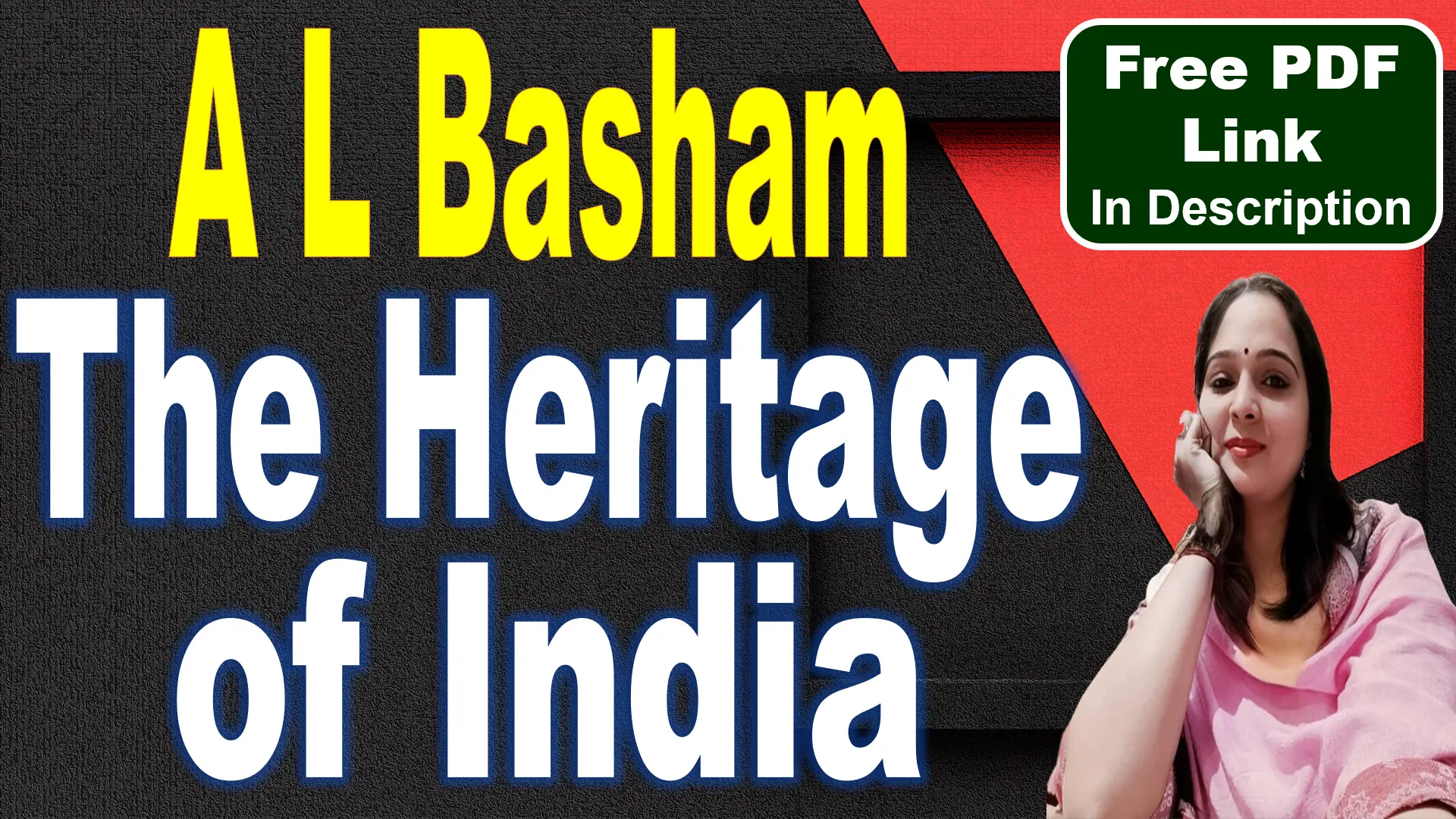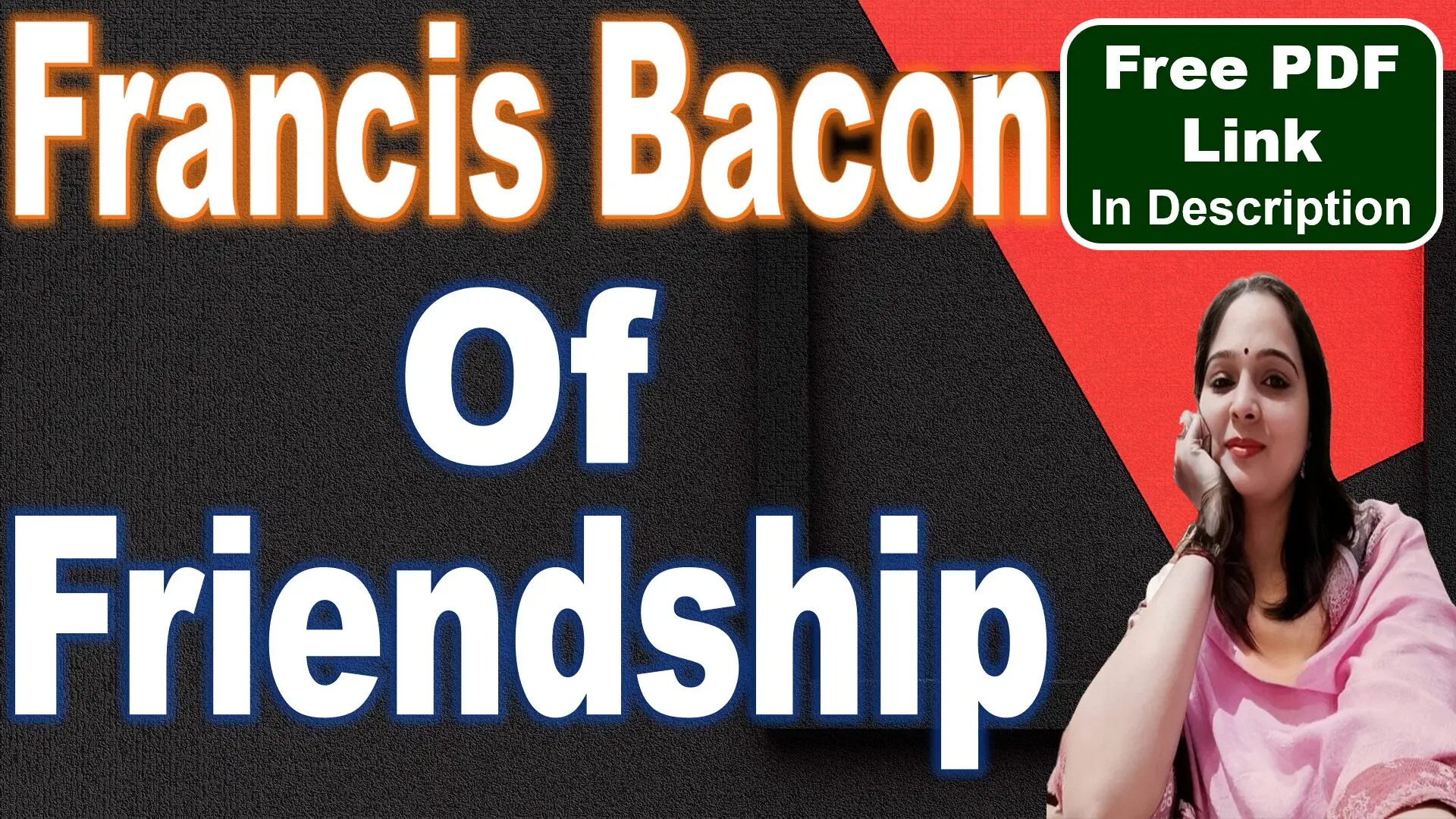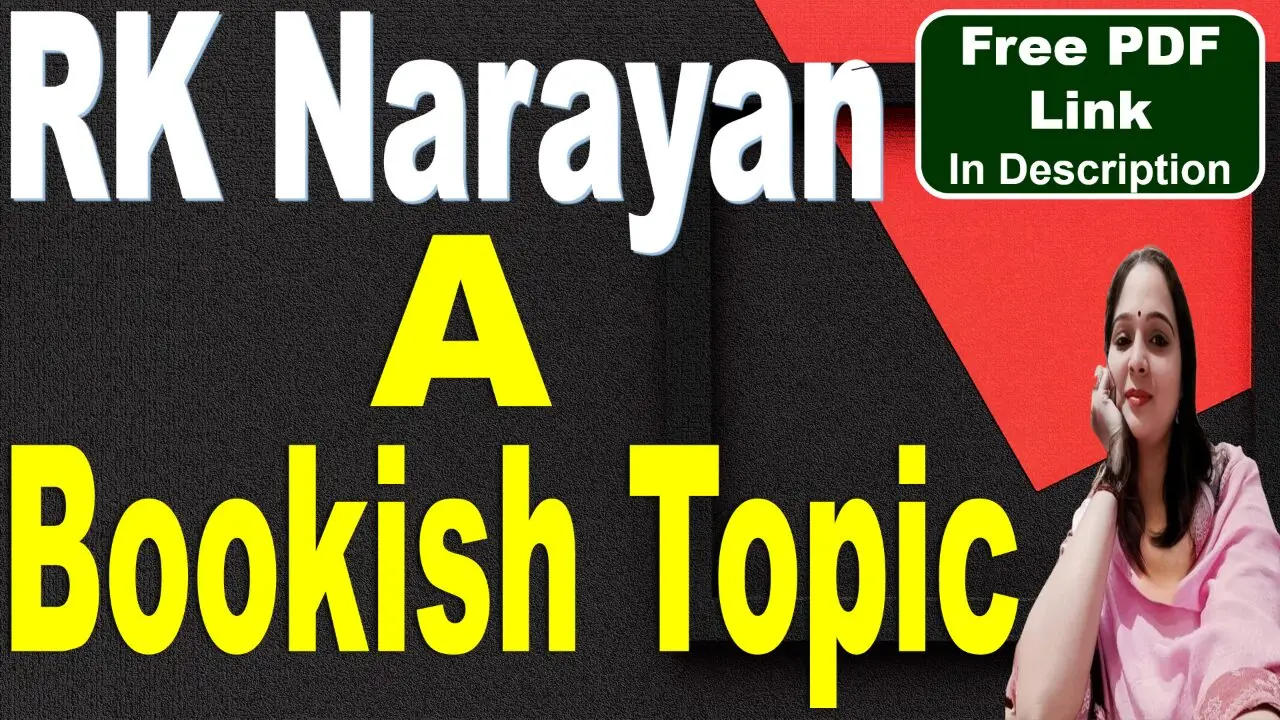
Write the critical appreciation of the Essay.
Introduction:
Sir Francis Bacon’s essay “Of Marriage and Single Life” is a masterful exploration of the contrasting states of marriage and single life. Written in the early 17th century, the essay reflects Bacon’s keen insight into human nature and societal norms of his time. Through a series of concise and thought-provoking reflections, Bacon examines the implications of both life choices, offering a balanced perspective that remains relevant even today.
Theme and Content:
The central theme of the essay is the contrast between the responsibilities of marriage and the freedoms of single life. Bacon delves into how marriage can limit personal ambitions but also provides a “discipline of humanity,” fostering compassion and social responsibility. On the other hand, he discusses how single life allows for greater personal freedom and often leads to significant public contributions, yet can also result in selfishness and a lack of emotional depth. Bacon does not merely present a one-sided view; instead, he highlights the complexities and nuances of both choices, acknowledging the benefits and drawbacks inherent in each.
Structure and Style:
The structure of the essay is reflective and aphoristic, characteristic of Bacon’s writing style. Rather than following a strict logical progression, Bacon organizes his thoughts as a series of observations and insights. This allows for a fluid exploration of the topic, with each point building upon the previous one to create a comprehensive analysis. His use of parallel structure, balanced sentences, and metaphors enriches the text, making it both intellectually stimulating and accessible.
Bacon’s style is marked by brevity and clarity. His sentences are short and packed with meaning, often employing aphorisms that encapsulate profound truths in a few words. This economy of language is one of Bacon’s greatest strengths, as it enables him to convey complex ideas in a straightforward and memorable manner. For instance, his description of marriage as giving “hostages to fortune” encapsulates the idea of how familial obligations can tie a person down, all in a single, vivid phrase.
Tone and Perspective:
The tone of the essay is balanced and contemplative. Bacon approaches the topic without overt bias, acknowledging the positive and negative aspects of both marriage and single life. His perspective is pragmatic; he understands the social and personal implications of both choices and presents them without moralizing. This neutrality allows readers to reflect on their own lives and make decisions that align with their personal values and circumstances.
Philosophical Insights:
Bacon’s essay is not just a reflection on marriage and single life; it also offers deeper philosophical insights into human nature and societal expectations. He explores how marriage serves as a moralizing force, shaping individuals into more compassionate and responsible beings. At the same time, he recognizes that the freedom afforded by single life can lead to significant achievements, particularly in public service. Bacon’s ability to see both sides of the issue speaks to his broader humanist philosophy, which values reason, experience, and individual choice.
Relevance and Legacy:
Though written over four centuries ago, Bacon’s essay remains highly relevant. The questions he raises about the balance between personal freedom and social responsibility continue to resonate in contemporary discussions about marriage, career, and individual fulfillment. His insights into human nature and societal roles are timeless, making the essay a valuable piece of literature for readers across generations.
Conclusion:
“Of Marriage and Single Life” is a testament to Sir Francis Bacon’s intellectual prowess and his ability to distill complex human experiences into clear, concise reflections. The essay’s balanced tone, insightful observations, and elegant style make it a standout piece in Bacon’s body of work. Through this essay, Bacon invites readers to contemplate the choices they make in their lives and consider how these choices shape their character, ambitions, and contributions to society. It is a work that transcends its time, offering wisdom that remains pertinent and thought-provoking in any era.
Write long note on Francis Bacon as Essayist.
Francis Bacon, a well-known figure from the 16th and early 17th centuries, is often called the father of English prose and one of the first great essayists. His essays are famous for their clear writing, deep insights, and practical wisdom. Let’s explore why Bacon is such an important essayist and what makes his work stand out.
Introduction and Background
Francis Bacon was born into a prominent family in London. His father was a high-ranking official, and his mother was highly educated. This environment influenced Bacon’s love for learning. He studied at Trinity College, Cambridge, and later at Gray’s Inn, where he trained as a lawyer. His education and background helped shape his analytical and thoughtful approach to writing.
Innovator of the Essay Form
Bacon’s collection of essays, “Essayes: Religious Meditations. Places of Perswasion and Disswasion,” was first published in 1597. This collection marked the beginning of the essay form in English literature. His essays cover a wide range of topics, from public matters to private thoughts, providing a broad look at life.
Bacon’s unique approach involved examining subjects from multiple angles, often presenting arguments for and against different ideas. This methodical style was innovative and set a new standard for essay writing.
Style and Prose
Bacon’s writing style is clear and to the point. He uses short, memorable statements, known as aphorisms, to convey deep insights. These aphorisms, such as “Knowledge is power” and “Reading maketh a full man; conference a ready man; and writing an exact man,” are easy to remember and packed with meaning.
His essays are known for their clarity and logical structure. Bacon avoids unnecessary words and focuses on delivering his ideas directly, making his writing accessible and engaging.
Themes in Bacon’s Essays
Bacon’s essays explore a wide range of themes, reflecting his interests and understanding of human nature. Some common themes include:
Knowledge and Learning: Bacon often discusses the value of education and the process of gaining knowledge. He emphasizes the importance of continuous learning and self-improvement.
Human Nature and Behavior: Many of his essays examine traits like ambition, envy, love, and friendship. Bacon provides insights into how these traits affect human behavior and relationships.
Practical Advice: Bacon’s essays are filled with practical advice on living a successful and fulfilling life. He offers guidance on handling adversity, the benefits of travel, and the art of negotiation.
Philosophical Reflections: His essays also contain deep thoughts on life, death, and happiness. He encourages readers to think about their values and the meaning of life.
Influence and Legacy
While Bacon borrowed ideas from earlier writers like Montaigne and Aristotle, his essays are highly regarded for their originality and depth. He did not just copy others’ ideas but built on them, adding his unique perspective.
Bacon’s influence goes beyond literature. His emphasis on observation and systematic thinking laid the groundwork for the scientific revolution. His essays continue to inspire writers, thinkers, and readers around the world.
Notable Aphorisms
Bacon’s essays are filled with memorable sayings that have become part of everyday language. Some notable examples include:
“If the Hill will not come to Mahomet, Mahomet will go to the hill.”
“Hostages to fortune” (from the essay “Of Marriage and Single Life”).
These sayings show Bacon’s talent for creating phrases that capture important truths and remain relevant across different contexts.
Modern Relevance
Bacon’s essays are still relevant today because they offer timeless wisdom on human nature and practical living. In a world that values both innovation and experience, his insights on balancing youthful energy with aged wisdom are particularly pertinent.
His essays encourage mutual learning and collaboration between generations, highlighting the benefits of combining the strengths of both youth and age.
Conclusion
Francis Bacon’s contributions as an essayist are unmatched. His essays, known for their clarity, practical wisdom, and memorable aphorisms, continue to resonate with readers today. Bacon’s ability to simplify complex ideas into easy-to-understand statements has made his work timeless. Through his essays, Bacon provides valuable insights into knowledge, human nature, and the art of living, securing his place as one of the most important figures in English literature.
Long Note on Themes in “Of Marriage and Single Life” by Sir Francis Bacon.
Sir Francis Bacon’s essay “Of Marriage and Single Life” explores several themes, each of which sheds light on the implications and consequences of both marriage and single life. The essay is notable for its balanced and nuanced examination of these two states of existence, providing insights that remain relevant across time.
1. Marriage vs. Single Life:
Bacon’s essay explores the differences between being married and being single. He suggests that marriage often limits personal freedom due to the responsibilities it brings. Single life, on the other hand, offers more independence and the chance to focus on personal goals without these obligations.
2. Impact on Achievements and Society:
Bacon notes that people who are single or childless might have more time and energy to contribute to society or achieve personal goals. In contrast, married people often have their ambitions affected by the need to care for their families. This theme highlights how marriage and single life can shape a person’s contributions to the world.
3. Moral and Emotional Development:
Bacon believes that marriage helps individuals grow morally and emotionally. Having a family encourages people to be more caring and responsible. In contrast, single people might not develop the same level of empathy and emotional depth because they lack the regular demands of family life.
4. Freedom and Responsibility:
The essay discusses the balance between personal freedom and responsibility. Marriage brings responsibilities that can limit freedom, but these responsibilities also contribute to personal growth and societal stability. Single life offers more freedom but can sometimes lead to a lack of responsibility and emotional connection.
5. Social and Economic Perspectives:
Bacon also examines how marriage and children are viewed from a social and economic standpoint. Some people see having a family as a financial burden. Additionally, wealthy individuals without children are sometimes seen as more successful. This theme reflects societal attitudes towards family life and financial status.
6. Gender Roles and Expectations:
Bacon’s essay reflects the traditional gender roles and social expectations of his time. He describes how wives take on different roles at various stages of a man’s life—partner in youth, companion in middle age, and caretaker in old age. This reveals the historical view of marriage and the roles of men and women.
7. Understanding Human Nature:
Through his discussion, Bacon provides insights into human nature. He examines how the choice between marriage and single life affects a person’s character and behavior. His reflections help us understand how these life choices impact personal development and one’s role in society.
8. Historical Context:
The essay is set against the backdrop of early 17th-century England. Bacon’s views are shaped by the social norms and values of his time. Understanding this context helps explain his perspective on marriage and single life, highlighting how historical attitudes influence his observations.
Conclusion
Sir Francis Bacon’s essay “Of Marriage and Single Life” offers a thoughtful comparison of marriage and single life. It explores how each choice affects personal freedom, moral growth, and contributions to society. Bacon’s insights provide a balanced view of the advantages and challenges of both lifestyles, making his observations relevant and insightful even today.





